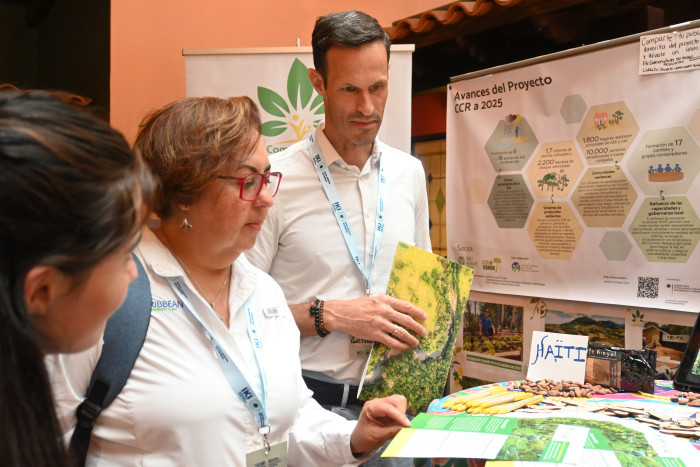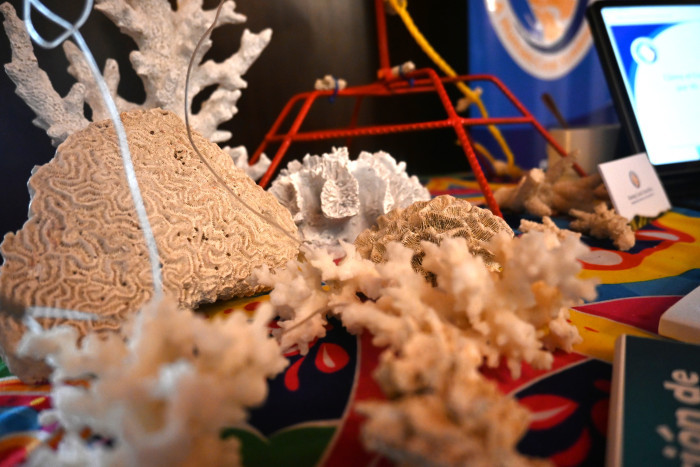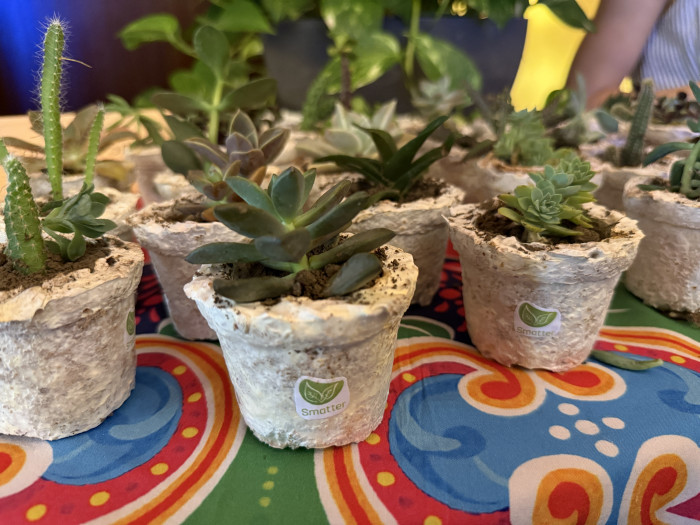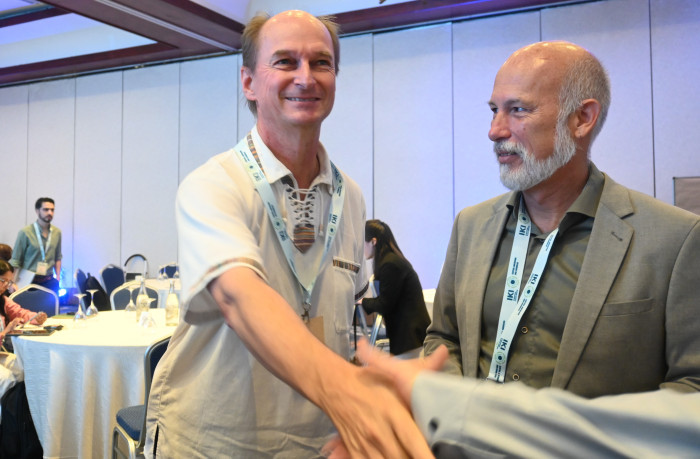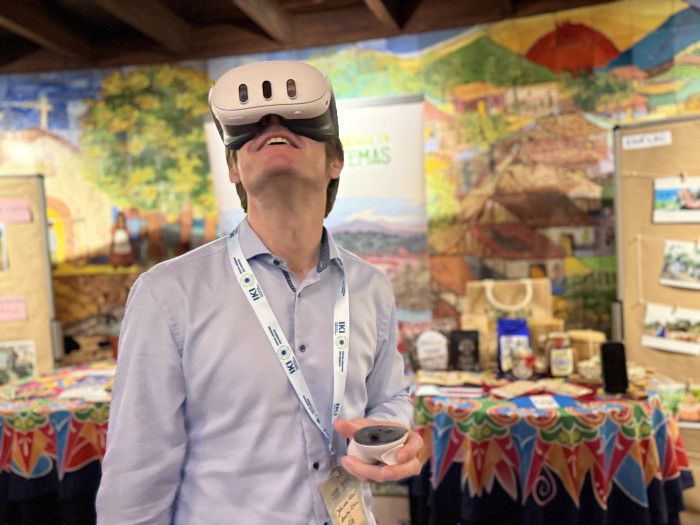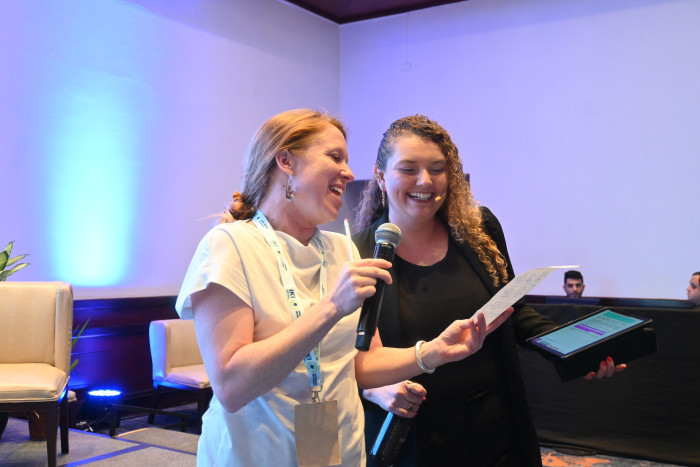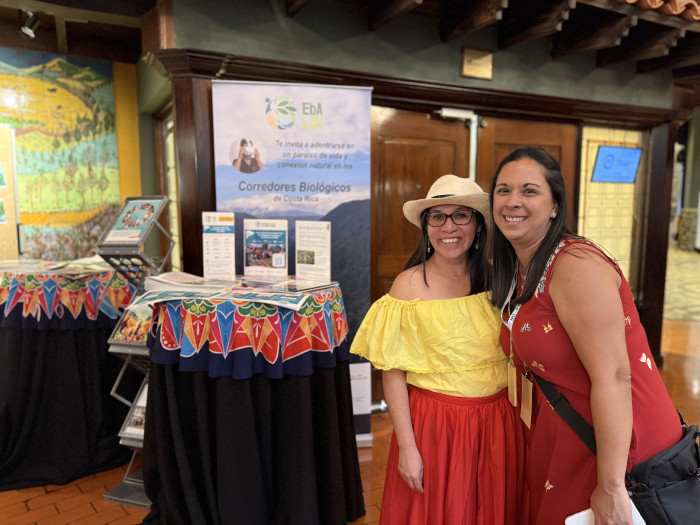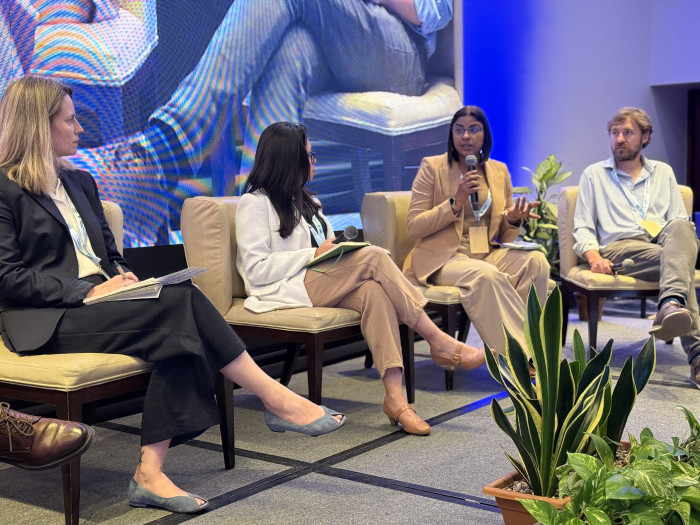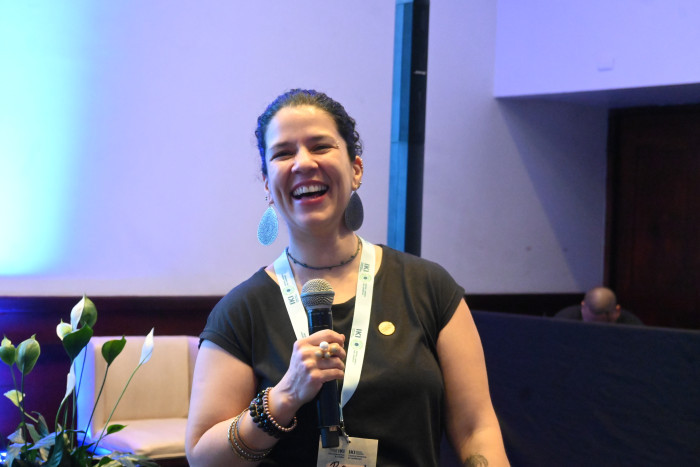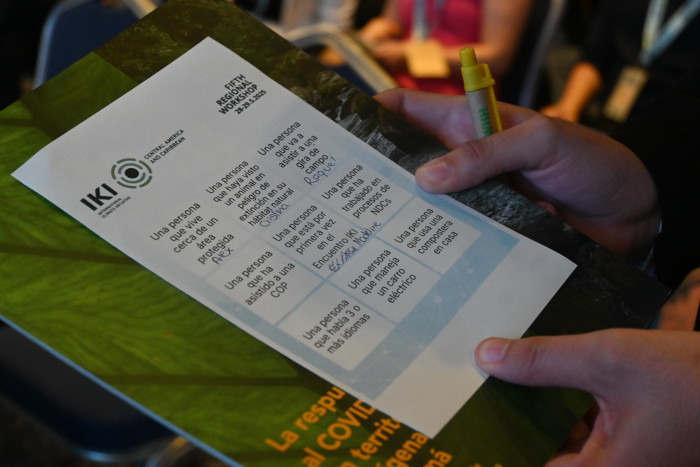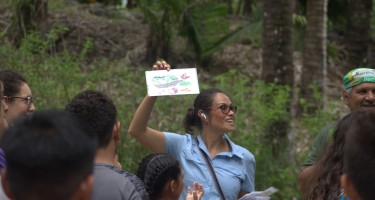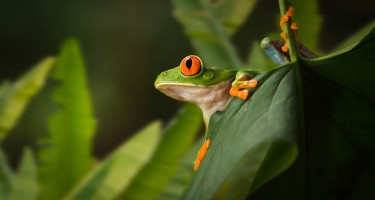IKI 2025 Workshop Through My Eyes
… and through my camera lens.
It’s not every day that you get to be part of a regional incubator for climate solutions. That’s why I want to share with you what I experienced – and what my camera captured – during the first two days of the IKI Workshop for Central America and Caribbean.
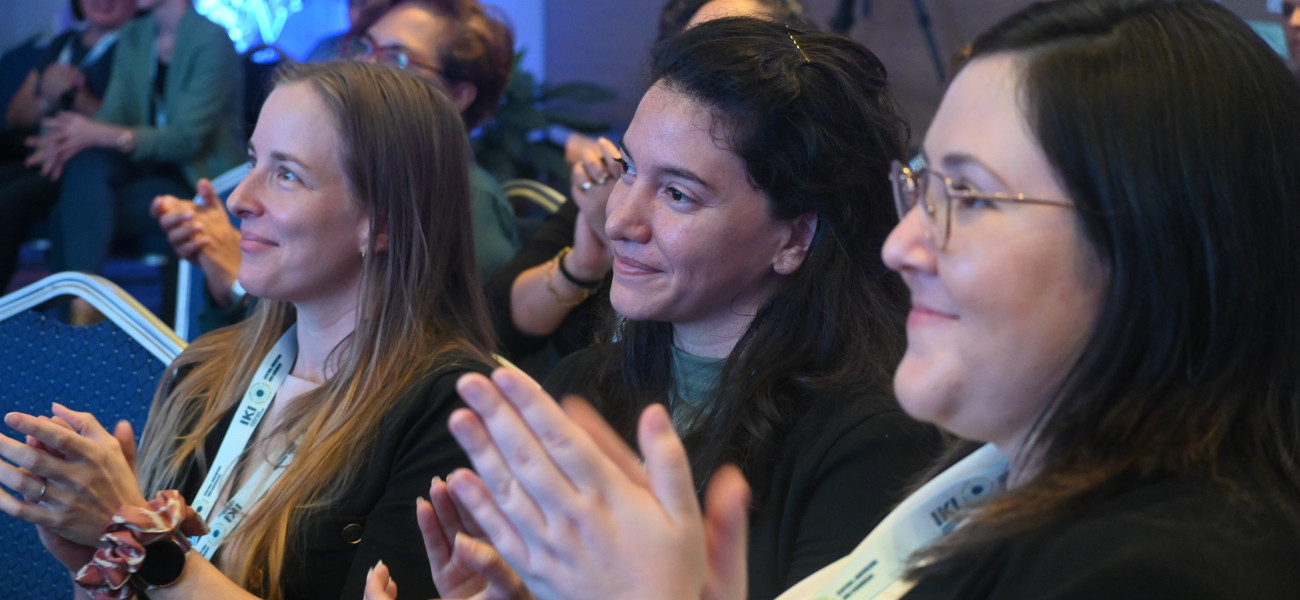
© Melisa Jerez Cerda, GIZ / ACCIÓN Clima
Costa Rica’s capital, under radiant sunshine, was the setting for this annual event, which brought together more than 20 projects funded by Germany’s International Climate Initiative (IKI). The goal?
- To connect with one another,
- to identify synergies, and
- to explore new ideas.
What I enjoy most about these events is how they bring you closer to colleagues working toward the same purpose. For instance, I got to learn more about two projects from the Dominican Republic: Caribbean Resilient Communities and EbA Facility (REDDOM), thanks to their representatives – Carlota, Alex, and Jesús. Great lunch companions, by the way!
© Melisa Jerez Cerda, GIZ / ACCIÓN Clima
Day 1: Networking
This was the most dynamic day – and easily my favorite.
Connecting with the IKI
We kicked things off with an official welcome from the German Embassy in Costa Rica and the Costa Rican Ministry of Environment and Energy. Then, it was time to get to know the IKI itself and learn about its priorities, thanks to Felipe Gómez, Policy Advisor from Germany's Ministry for Economic Affairs and Energy, and Petra Nieland, Project Manager at the IKI office within ZUG.
IKI Marketplace
Next, we visited the IKI project fair under the motto of "Brewing Ideas", in order to learn about the purpose, actions, and results of the IKI projects – each showcased in a uniquely creative booth.
We got to see, up close and in vivid detail, a variety of coral skeletons collected by Raising Coral as part of their reef restoration efforts in Costa Rica's Golfo Dulce. These samples represent just one part of their work establishing coral nurseries and advancing conservation efforts.
A few steps further brought us to the EbA LAC booth, where we were able to explore Costa Rica's San Juan-La Selva Biological Corridor in an immersive experience using virtual reality to learn more about the project's work there.
Bingo!
After an active morning, the afternoon was filled with opportunities to get to know each other and start building the synergies I mentioned earlier.
But first – who hasn't played bingo at a fundraiser or family gathering? That’s exactly how we become better acquainted, Latino style. Through the game, we discovered colleagues who had attended a COP or seen an endangered species in the wild. It was a great way to break the ice.
Ideas 360°
Then we moved on to Ideas 360°, a world café-style session designed to uncover opportunities for future collaboration among projects. Some of the ideas that emerged:
- Launching two new programs to support nature-focused entrepreneurship: Biofin / TNFD projects.
- Supporting Costa Rica's process to update its Nationally Determined Contributions (NDCs): ACCIÓN Clima.
- Testing a pilot reef restoration model with project stakeholders in the Golfo Dulce and Cahuita: Enhancing adaptive capacities of coral gardeners in reef-dependent communities.
We ended the day with a series of Open Spaces, where participants proposed their own topics for discussion, including strategic communications, the role of the private sector, and more.
Day 2: Technical Discussions
The second day focused on technical themes, with two parallel sessions in the morning and two more in the afternoon.
In the morning:
Costa Rica, El Salvador, and Saint Lucia shared how they are advancing their climate commitments through innovation and with the support of sectors such as youth and private enterprise. IKI added valuable and relevant perspectives on how its cooperation projects contribute to these national efforts.
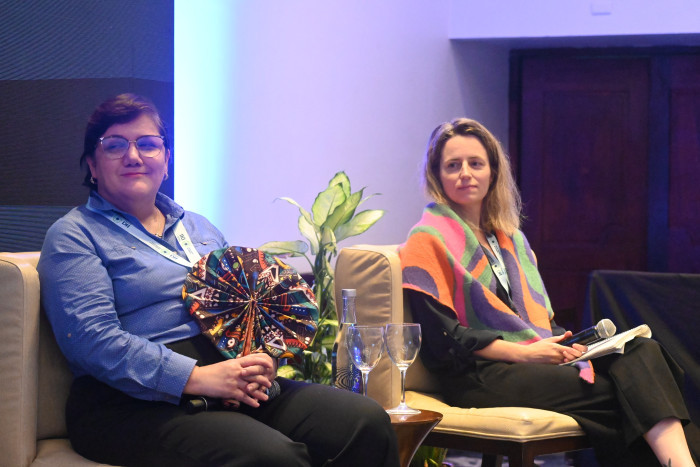
Adriana Bonilla, Director of the Climate Change Directorate (DCC) of the Costa Rican Ministry of Environment, and Petra Nieland, Project Manager and Adaptation Specialist, IKI Office at ZUG, during the panel about NDCs in the region. © Melisa Jerez Cerda, GIZ / ACCIÓN Clima
We explored how ecosystem-based adaptation (EbA) is a solution to the challenges and conflicts between productive activities – like tourism and fishing – and the conservation of natural ecosystems.
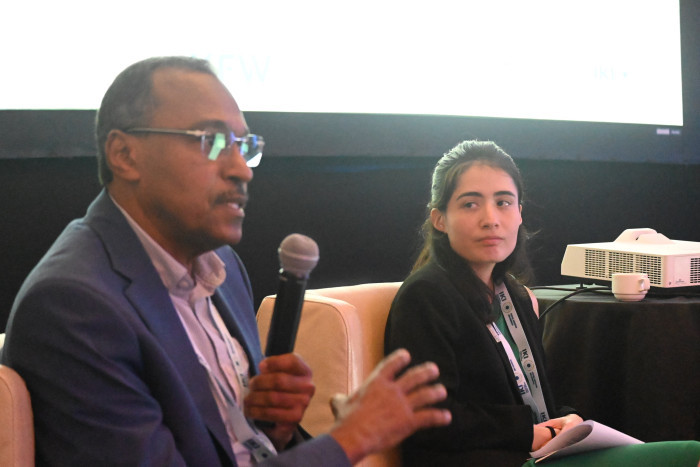
Madeline St. John and Jesús de los Santos, grantees from the EbA Facility project, presented their experiences during the exchange space. © Melisa Jerez Cerda, GIZ / ACCIÓN Clima
In the afternoon:
How can fiscal systems help accelerate the shift toward a green economy? We reviewed the findings of a groundbreaking study in Costa Rica and explored proposed reforms that link fiscal policy instruments to climate action.
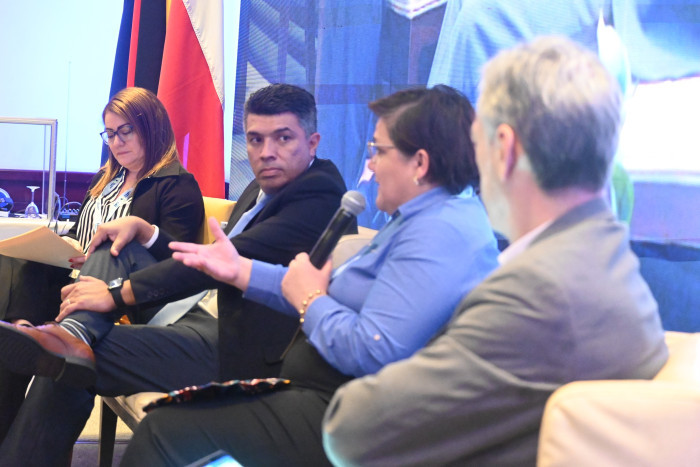
Panelists during the side event. © Melisa Jerez Cerda, GIZ / ACCIÓN Clima
We analyzed progress on tools designed to address the climate and biodiversity crises, their coordinated and intersectoral implementation, and their challenges, based on the experiences of Costa Rica, Ecuador, El Salvador, Guatemala, Haiti, Panama, and the Dominican Republic.
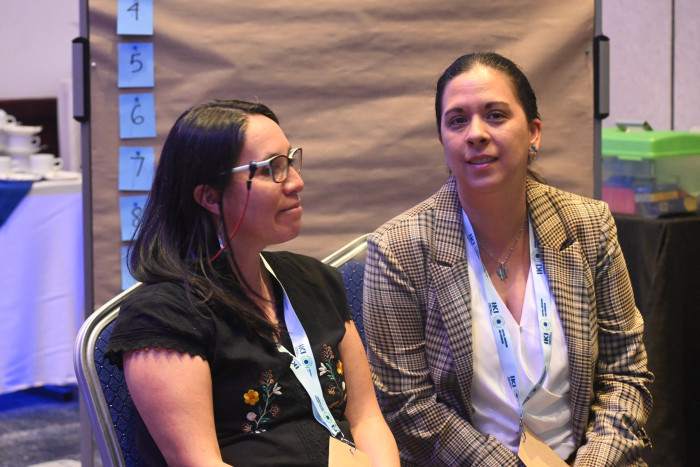
Two participants during the side event. © Melisa Jerez Cerda, GIZ / ACCIÓN Clima
And that’s how we wrapped up two full days of strategic activities – not just to build new synergies, but to remind ourselves of the reason we’re all here.
I can’t wait for the next gathering!
Melisa Jerez Cerda
Communication Specialist
Interface Project IKI Central America and the Caribbean/ ACCIÓN Clima
- Country: Antigua and Barbuda, Bahamas, Barbados, Belize, Costa Rica, Cuba, Dominica, El Salvador, Grenada, Guatemala, Guyana, Haití, Honduras, Jamaica, Nicaragua, Panama, Dominican Republic, Saint Kitts and Nevis, Saint Vincent and Grenadines, Saint Lucia, Suriname, Trinidad and Tobago
- Project:
- Contact:
Equipo interfaz IKI Centroamérica y Caribe
